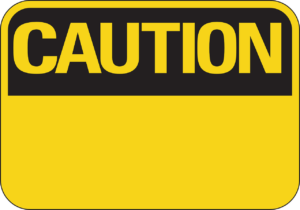How safe is IV sedation in dental procedures? There has been a lot of controversy surrounding who should administer anesthesia during dental treatments.
The ‘single operator’ model, where the dentist performs both the procedures and anesthesia simultaneously. Many studies have shown adverse anesthesia events, causing serious injuries to the patient, when a certified registered nurse anesthetist was not administering IV sedation.
A recent article in KBTX, by Investigate TV, advocates for stricter guidelines for dental sedation and anesthesia.
State regulations nationwide often allow dentists to do something other medical professionals generally do not: handle both anesthesia and surgery.
 “I don’t think anybody can sedate somebody safely and perform a procedure at the same time. You have to concentrate on what you’re doing, right?,” said Dr. Charles Coté, professor emeritus of anesthesia at Harvard Medical School. “I honestly don’t see how you can do that and operate in the mouth and truly recognize when things have gotten out of hand.”
“I don’t think anybody can sedate somebody safely and perform a procedure at the same time. You have to concentrate on what you’re doing, right?,” said Dr. Charles Coté, professor emeritus of anesthesia at Harvard Medical School. “I honestly don’t see how you can do that and operate in the mouth and truly recognize when things have gotten out of hand.”
Coté has spent decades looking at what happens when those worst-case scenarios occur during anesthesia, examining cases where dental patients have died or been seriously harmed. His clinical research, which began in the 1980s, helped create critical guidelines for dental sedation and anesthesia.
Those recommendations, which Coté says first targeted pediatric patients, have continued to evolve. He believes they improve patient safety when they’re followed.
But they’re just guidelines, not requirements dentists are obligated to follow.
“There’s no law that says they have to follow a guideline,” Coté told InvestigateTV. “It’s just common sense.”
The guidelines recommend that a dentist doing surgery should be accompanied by another sedation provider with specific airway rescue training. That individual, the guidelines recommend, can be another oral surgeon, an anesthesiologist, a CRNA or a dentist anesthesiologist, with both people specially trained for emergencies.
“When something goes wrong, there’s nobody else available to help them out. And when you think about it when you have a rare event, then panic shuts in, and then your mind shuts down,” Coté said. “And if you’re not used to dealing with those things every day, that’s when things really go wrong.”
“You can’t tell me a dental assistant knows how to do resuscitation, knows how to pass a breathing tube or knows how to do mask ventilation. You can have 10 people in that room, 20 people in the room. Who cares if they don’t have the skill set? They’re not going to successfully rescue,” Coté said.
Olivia Oliver, Ashton Hackman, Julia Pearl, Rebekah Schultz, Lily Marks, Mitch Lierman, and Emma Luce with the Arnolt Center for Investigative Journalism at Indiana University contributed to the research for this report.


